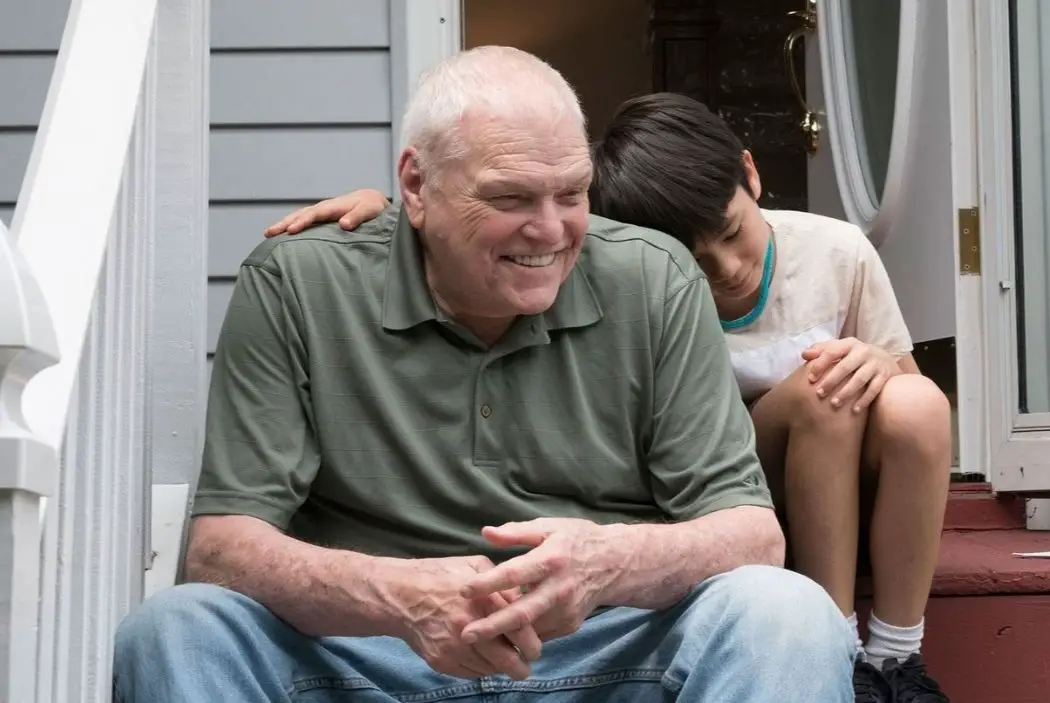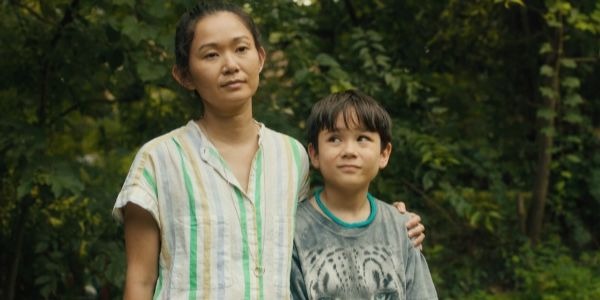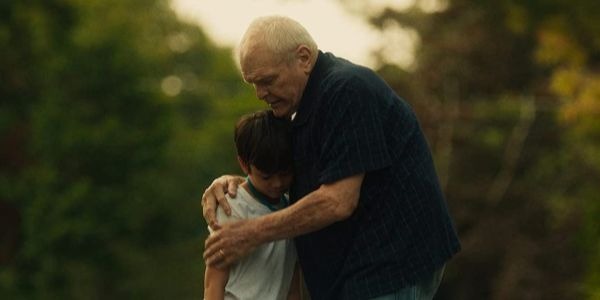DRIVEWAYS: Cinema for The Soul

Tynan loves nagging all his friends to watch classic movies…
Driveways is the kind of movie that requires something from its audience. If nothing else, it calls for an attentiveness for what is in front of us. It is about the beginnings and endings of life – the intermittent periods in between – and how those spaces overlap with one another.
It is born out of interludes of calm and quiet. Very rarely does it get the pulse going, but lest anyone is misled, it is far from a boring experience. To dismiss it as such is missing the point. It brims with interests all its own. At 83 minutes long, it is a mini marvel because it appears so slight yet bears manifold treasures. The fact that its main characters are Asian-American, likewise, is as consequential as it is accepted within the frames. Nothing more needs to be said about it. What unfolds feels like an implicit vote of acceptance.
These are the kind of movies we should reward with our praise, especially during this time. It will only catch fire through word of mouth and people standing by what it has to offer. I for one will try and do my part.
A Simple Story
The story is one of those deceptively simple conceits. A single mother (Hong Chau) and her son Cody (Lucas Jaye) drive out to her late sister’s residence. As her last remaining family, the onus is on Kathy to clean the place up to sell. What she finds is a pack rat’s paradise full of worldly goods piled high. It’s a bit daunting for one person to tackle this, not even considering the dead cat they find in the bathroom.
But if this is a goal that must be accomplished before the movie is over, it rarely distracts from what becomes of greater interest. Because Cody is a sensitive kid. Taciturn and rarely forthcoming, even with his mother. The opening scenes establish as much. Then, in the company of others, he’s especially shy. He’d much rather play on his gamepad or read a book than roughhouse with kids his age.

In many ways, this is his story. One of the people who helps him, and who he in turn helps, is the next-door neighbor, Del (Brian Dennehy) – a widowed Korean War vet. Although I know admittedly little about the breath of Dennehy‘s career, he brings with him an untold history like many veteran actors. Here it is not so much alluded to as it is present – giving weight to his experience – because we know he has done so much in a lifetime full of work. Now he can only look back through the rearview mirror.
Daily, his character eats his meals alone at his dining room table, the family photos just out of reach. Later he’s falling asleep in front of the TV or meeting some of his old buddies at a weekly game of bingo. Because very little goes on and the rhythms are deliberate, you notice the minutiae, like his wedding ring. It says enough about him.
A Friendship
The friendship between a boy and his surrogate neighbor is born out of a momentary interaction. Cody has the intuitive sense of empathy children are often blessed with. Although he’s rarely said a word, seeing the man just sitting there for ages, he finds it within himself to blurt out, “Are you okay?” Del tells him he’s just waiting for his friend. He must have forgotten. That’s what happens when all your friends are seniors. And so they proceed to give him a ride to where he needs to go. It’s an inauspicious beginning, but the warmth is evident.
There are other neighbors too. A brother and sister with giddy energy and a straightforward candor. They like manga. This piques Cody’s interest. Then, a loquacious grandmother, a bit overbearing, to go with her two lively grandsons who like wrestling, donuts, and stirring up mischief.
In another film, these might feel like pointless dead-ends, but they color this neighborhood and give it something worth observing. It’s meditative even therapeutic. Driveways, time and time again, exerts itself as pensive cinema calling for a certain amount of patience and the curbing of our desire to be entertained every waking second. What it provides in its place is something bearing human substance, at least in the sense that we get to know people and see them in their struggles, only to see how they cope and make their way in the world as best they can. We become aware of a child’s reverence for both the living and the dead. Cody feels obligated to bury the dead cat, and Del supplies the spade watching his progress.

So many times, with beats like these, we find the story emphasizing a visual over a verbal medium. Far from being limiting, it’s a refreshing respite. Life is not simply made up of moments of conversation, but it involves being present with other people. There’s something comforting, even calming, about spending time together in this way – even if it’s only vicariously on the screen.
This is how a bummer birthday at a roller rink becomes transformed into a genial bingo party. Where the raucous noise is replaced by a kind of relaxing familiarity. Later, Cody lounges on Del’s porch reading the comics, between handfuls of popcorn, perfectly at ease.
Transitions
While these sequences of tranquility are plentiful, life is never truly stagnant. Movements and transitions are going on all the time. One of the benchmarks is the progress Kathy makes in tirelessly cleaning out her sister’s home, so they can put it on the market. She accomplishes so much over the course of an hour. But there is more.
If a movie like UP was about cross-generational bonding, then Driveways is a reminder of why that earlier film could never have a sequel. Because in life things change. People move on, whether it’s across the country to Seattle, to a new career path, or a new zip code beyond this mortal coil. If anything makes this supremely apparent, it’s the real-life passing of Dennehy only months ago. Life is constantly in a state of flux.
For so many, religious faith is closely tied to thoughts of death and the afterlife. The film never dwells here, but even if we keep something like Pascal’s wager in the back of our minds, it’s curious how those closest to “the end” of life have a greater stake in spirituality.
Cody says, “I have strong beliefs, but don’t really like religion.” Del responds, “I don’t go to church anymore.” Cody asks, “Did Vera like church?” He simply nods. This gradient is created right in front of us in a momentary interaction only to be quickly forgotten. It’s not so much a statement as it is yet another nugget to consider.
With their time winding down together, Del and Cody sit on the porch steps. The old man starts recounting one of the yarns he’s got hidden away in his memory. Back when he was still in the service, he hitchhiked with his friend Eddie from Joplin, Missouri to California in a hearse. Without fully considering the poetic implications, Del wishes he could do it all over again – slow it down – and really see the country for all its beautifully intricate eccentricities.
He bears the type of regrets that aren’t the kind of death-bed scenarios we expect in movies. Rather, his are the sinking feelings – the authentic regrets we all carry with us as we soldier on. They ring with the hollowness of reality. Knowing you cannot go back, and you must make your peace as best as you can. This is not just his task but all of ours.
Driveways doesn’t necessarily provide answers, but it looks to find solace in decisions, with the lives we choose to leave, and the relationships we forge. What we’re left with is this kind of cross-generational symbiosis. In some perfectly ordinary way, Cody and Del are able to meet each other where they are and leave a meaningful impact on one another.
What are some of the best movies at showing cross-generational friendships? Please let us know in the comments below.
Watch Driveways
Does content like this matter to you?
Become a Member and support film journalism. Unlock access to all of Film Inquiry`s great articles. Join a community of like-minded readers who are passionate about cinema - get access to our private members Network, give back to independent filmmakers, and more.
Tynan loves nagging all his friends to watch classic movies with him. Follow his frequent musings at Film Inquiry and on his blog 4 Star Films. Soli Deo Gloria.













